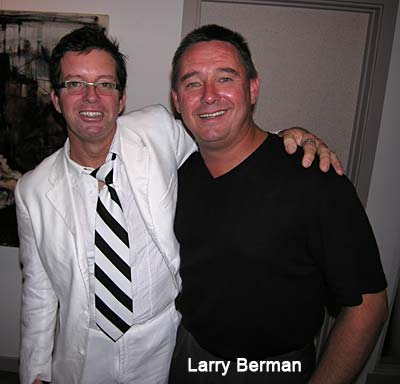Introduction:
Robert Stadnycki was one of the five people chosen to jury the 2007 Cherry
Creek Arts Festival. He brings the most interesting perspective to the
table as he is an exhibiting artist and the director of the Harrisburg
Arts Festival. As someone who knows Robert personally from doing shows
with him and having done his Harrisburg show numerous times, I feel that
his ethics and sense of fairness are above reproach.
Cherry Creek got approximately 2,400 applications, which translated
into 12,000 images which the jurors had to evaluate over three days.
Robert:
Two of the jurors were award winners from last year, one was a curator
from a contemporary museum and the fifth was an art critic. Between myself
and the other two artists, we knew what an art show was supposed to look
like. For example, why some artists set up a certain kind of non
standard booth. The booth helps with scale and dimension. Impact factor
if itís a WOW booth. Or; ďOh my GodĒ, the work is so great but they just
have things stacked on a table. Also, the booth had to have the current
style of work. That was how we used the booth slide.
It was probably the best art experience Iíve ever had, being able to
appreciate such great art and knowing personally how hard artists work to
create it and the phenomenal quality of the show. It was so thrilling to
know that there was an organization out there that has such high
integrity, does everything right, thinks about every single detail for
artists by artists. It was exciting.
The best thing to do is create great art. Then get a good photographer
to photograph it correctly. The main problem with artists who did not get
in was the inconsistency of their work, the quality of their images and
the matching of their booth image to the work. As long as the work had
great flow, it had credibility because it was obvious that the artist was
thinking about a theme and the body of work matched. It was obvious that
the work wasnít from different years or different photographers. The main
thing that stood out was the consistency in the quality of the images and
the background color.
The biggest problem causing someone to get bumped, because the
competition was so tough, was if there was a mismatch of backgrounds we
couldnít figure out if it were old work, new work, not important work, or
more important work. So truly have a full body of work that matches
because the jurors only have a few seconds to judge whether something is
apparently good on the screens.
During the projection of the images, the committee continuously
stressed that we look up at the screens to evaluate the work, not at the
computers. Each picture was projected huge, approximately five feet square
and the five images across filled a 25 foot wide wall. If there were any
questions, we could stop and enlarge the image to evaluate detail, which
we actually did a great deal to answer questions about the work right
away. The committee controlled the equipment expertly so if one image was
in question, we didnít have to see all five enlarged. I was not a ZAPP
lover before this but now I now think itís an incredible way to view jury
images.
Strive for excellence. When you apply to that level of show with as
much competition as there was here, you need to do the best you possibly
can. As with any other jury, most artists assume that there is some
favoritism in who gets picked. There was not one moment the whole entire
time did I ever feel that any one artist, even if they had won an award
last year, had more credibility or scored more points in the jury. It was
truly based on the images being viewed. There was no influence from the
committee on what might have been a favorite artist or a really great
booth. It was all on the merit of the slides. Sometimes the artists take
it personally; like that juror doesnít love me. Or that show didnít like
me and they rejected me. There are shows Iíve personally applied to for
maybe 20 years and never have gotten in but one day I will and itíll be
worth it. So I tell people, though I know the jury fees are high, if
you give up and have an attitude, itíll affect your whole body of work and
the way you make your art. Itís a complicated process and so competitive
with ZAPP getting more applications. But though times are getting tough,
you still need to do as good as you can.


